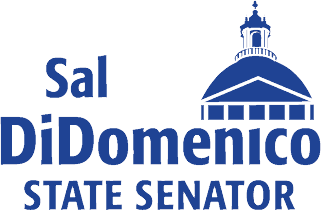BOSTON– Senator Sal DiDomenico has joined forces this legislative session with Representative Adrian Madaro of East Boston and a coalition of immigrant and civil rights advocates from across the Commonwealth to introduce new legislation that would ensure equal access to government services, programs, and activities for people with limited English proficiency. DiDomenico and Madaro have filed S.2040/H.3199, An Act relative to language access and inclusion, to standardize, and provide enforcement mechanisms for, language access at public-facing state agencies.
Massachusetts is one of the most linguistically diverse states in the country, with 1 in 10 residents having limited English proficiency. However, there is currently no comprehensive language access statute in Massachusetts to ensure that non-English speaking residents have a fair and equitable opportunity to obtain an education, apply for benefits, receive housing assistance, or represent themselves in court. While Massachusetts has long needed to build the capacity of public-facing state agencies to meet the language access needs of an increasingly diverse population, the COVID-19 pandemic dramatically exposed the incapacity of state agencies to provide consistent services in other languages.
Last week, DiDomenico and Madaro hosted a virtual State House briefing in conjunction with Massachusetts Appleseed Center for Law and Justice, the Massachusetts Immigrant and Refugee Advocacy Coalition, Mass Law Reform Institute, and South Coast Counties Legal Services to educate legislators and staff on the crucial and timely need for this new piece of legislation.
“This bill is truly a matter of equity and justice for so many people living in this Commonwealth, especially the residents of my district,” said DiDomenico. “Non-English speaking residents absolutely deserve to have equal access to public health information, education, unemployment assistance, healthcare, housing, and other crucial services, especially those related to the COVID-19 pandemic. I am very proud to partner with the Language Access For All Coalition on this critical piece of legislation and look forward to working with them to get this bill across the finish line this legislative session.”
An Act relative to language access and inclusion would mandate, standardize, and enforce language requirements for state-funded programs by requiring agencies to translate websites and documents and provide oral interpretation services into non-English languages spoken in the state, including American Sign Language. A Language Access Advisory Board would provide oversight, technical assistance, and relief mechanisms to those who haven't received adequate language access under the proposed legislation.
In addition to DiDomenico and Madaro, speakers at the legislative briefing included Dawn Sauma, co-Executive Director of the Asian Task Force Against Domestic Violence, Pastor Dieufort Fleurissaint of Haitian-Americans United, Inc., and Dr. Neenah Estrella-Luna, Northeastern University professor and community advocate focused on community and institutional equity, inclusion and belonging.
This legislation is currently pending before the Joint Committee on State Administration and Regulatory Oversight.
###
